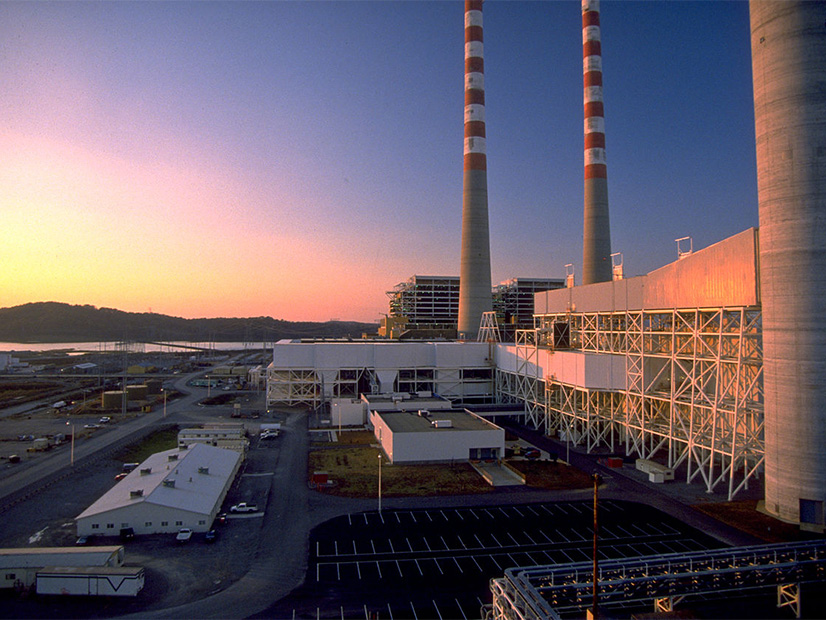The Southern Alliance for Clean Energy (SACE) has protested with FERC that the Tennessee Valley Authority’s justification behind a new gas plant’s construction is faulty, urging the commission to conduct its own assessment into the resource’s need.
TVA has proposed a natural gas plant and a 32-mile pipeline to replace its coal-fired Cumberland Fossil Plant northwest of Nashville. The alliance said the federal agency would be better served with a blend of large-scale and distributed solar, wind and storage resources and energy efficiency measures.
SACE’s protest was registered in a docket related to Tennessee Gas Pipeline Co.’s request for FERC permission to build the gas pipeline. The alliance was among several public-interest groups that urged TVA in June to rethink its plans after the agency filed its environmental impact statement (CP22-493). (See Nonprofits Urge TVA to Reconsider Gas-fired Options.)
SACE repeated its position that the draft EIS isn’t a reliable document and lacks a transparent analysis to support it. The alliance said FERC should assess other alternatives. It said the draft clings to an outdated and rosy natural gas price forecast and said it is based on TVA’s 2019 integrated resource plan, which used assumptions made from 2016 to 2018 and predates President Joe Biden’s executive order that calls for net-zero carbon emissions in the electric sector by 2035.
“Were TVA to build a new carbon-emitting gas CC at Cumberland by 2026, with no plans for capturing the carbon, it will immediately become a stranded asset in less than a decade and thus add to the utility’s costs that must be borne by the 10 million people it serves,” SACE said.
It also said the federal agency didn’t consider the possibility of energy efficiency programs offsetting some demand or importing wind power into its territory.
“Since TVA is currently lagging the Southeast in energy efficiency savings, a region that lags the country in energy efficiency savings, and the National Renewable Energy Laboratory estimates there is substantial energy efficiency potential in just Tennessee alone, it is absolutely reasonable to assume that energy efficiency would be a cost-effective addition to a clean energy portfolio replacement,” SACE argued.
The alliance also suggested that TVA executives may have a conflict of interest, noting they receive millions in bonuses tied to the availability of coal and gas plants but don’t have any incentives attached to expanding renewable energy or energy efficiency.
SACE said there is no evidence that TVA took any steps to meaningfully evaluate other Cumberland replacement plans.
“These actions could have included issuing a request for proposals for renewable energy and energy storage resources, staffing up its interconnection study department to prepare to interconnect renewable energy projects faster, identify and begin planning transmission projects to ease the integration of renewable energy projects and beginning to set up energy efficiency programs and other demand-side measures,” SACE said. “TVA’s actions to date make it very clear that it always intended for the gas [combined cycle] option to be its preferred option regardless of the environmental review process, and that brings the merit of its environmental review into question.”
The Sierra Club and Appalachian Voices also filed protests in the docket. They said the Tennessee Gas Pipeline “can offer no reliable evidence that its only customer, TVA, will ever be able to move forward with its plans.”
“The proposed power plant would emit millions of tons of greenhouse gases each year, rendering it incompatible with the President’s executive orders on climate change, dependent on a volatile and increasingly expensive fuel, and more costly than an available suite of clean energy resources,” the environmental advocates said.
The Sierra Club and Appalachian Voices also urged FERC to “independently evaluate the need” for Cumberland City and the pipeline and consider “clean energy alternatives that could replace both at lower cost to ratepayers.” It said the commission’s examination is needed because TVA lacks meaningful oversight and competition.
TVA maintains that it hasn’t made a final determination regarding its natural gas plant plans.
“TVA has not made any decisions about the future of that plant nor replacement options, pending completion of the [National Environmental Policy Act] process later this year,” spokesperson Ashton Davies said in a statement to RTO Insider.
TVA stressed that it is not involved with the construction of the pipeline or its permitting and regulatory process. Davies said the utility would merely be a customer of the pipeline should it elect to construct a gas-fired plant.
“TVA is supportive of the project as it would be a likely source for natural gas, should TVA choose that option to replace capacity at Cumberland Fossil Plant,” Davis said.




